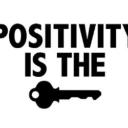Yahoo Answers is shutting down on May 4th, 2021 (Eastern Time) and the Yahoo Answers website is now in read-only mode. There will be no changes to other Yahoo properties or services, or your Yahoo account. You can find more information about the Yahoo Answers shutdown and how to download your data on this help page.
Trending News
Arm/shoulder injury...more wrong than original diagnosis?
Hi all,
In early February, I suffered an arm/shoulder injury during a seated shoulder press workout (utilizing 70 pound dumbbells per arm). The orIginal sensations I felt were numbness in my entire right arm, which lingered on for approximately 5-7 days post-injury. Since then, I have had my shoulder evaluated, had an MRI performed, and learned that I had suffered a posterior labral tear in my right shoulder. However, I have noticed that despite the labrum being torn, I occasionally suffer from tightness/numbness sensations in my right bicep as well as instability in my shoulder. Furthermore, even my clavicle (I think that s what it s called...piece between essentially the shoulder and right chest/pec) ) has felt off/as if it s drooping or something. In the mirror, everything appears fine, but on the inside, it doesn t feel right. Even with arm/upper body exercises, I experience some slight numbness, and even days that I am not working out I experience those sensations as well. My question to you guys is the following; is my right shoulder labral tear more complex than just a torn labrum? Thanks in advance to anyone who helps answer this!!
1 Answer
- Ds_EsnceLv 55 years ago
Hi Chuck,
in addition to your current injury, i believe you also have a pinched nerve [ where the Clavicle & shoulder joint meets ]. The only solution i know is ice the area before bedtime for 19 minutes, remove ice pack for 18 minutes, re-apply ice pack for another 19 minutes, etc. until ice melts. Stay away from overhead movements, until you can perform overhead movements without pain. If you experience pain following 5 days of rehabilitation, seek
another opinion /medical advice.
Good luck!!!
Source(s): Biomechanist: Anatomy; Biology; Athletic Training; Physiology; Motor Development; Kinesiology; Exercise Science; Athlete for LIFE.



